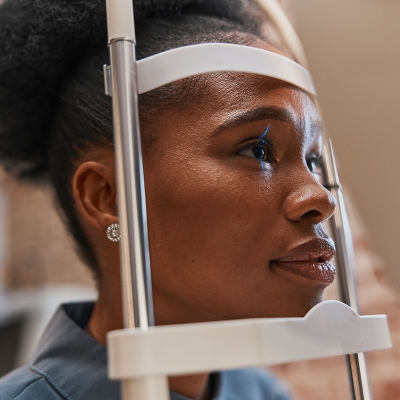Your UnitedHealthcare vision and dental benefits: A powerful pair
How to make the most of you vision and dental benefits

Vision and dental insurance may be two of the least expensive plan types you can choose during open enrollment each year, yet they do a lot of heavy lifting for your overall health. Taking full advantage of the benefits offered by vision and dental plans could help save you a lot of money and time by preventing health troubles down the road. Learn how to make the most of your benefits now.
What your UnitedHealthcare vision plan covers
You can get a comprehensive eye exam each year for a small copay. You’ll also get an allowance to buy new eyeglasses frames, meaning if you choose frames within the allowance amount with standard lenses, you won’t have any out-of-pocket costs. If you choose additional options or lens upgrades (for example, progressive lenses or UV coating), you’ll pay the difference in price. If you prefer contacts, your plan may cover those too; see your summary of benefits for details.
Because pregnant and breastfeeding women and kids up to age 19 can experience vision changes quickly, those members can get additional benefits like 2 annual eye exams, plus new glasses if their prescription changes significantly (by more than 0.5 diopters).
Running low on your favorite hard or soft contacts? Order a new supply online today.
Why you should use your UnitedHealthcare vision benefit
An eye exam matters if you’re having trouble seeing or can no longer get by with drugstore reading glasses. But that’s only part of what an eye exam is for.
During a comprehensive eye exam, your optometrist or ophthalmologist will check more than just how well you can see. That includes checking your peripheral vision and the pressure inside your eye, as well as examining the blood vessels in your retina (the back wall of the eye). Those tests will show if you’re at risk of developing cataracts, glaucoma, macular degeneration or diabetic retinopathy, diseases that can sneak up on you because they develop gradually. (In fact, glaucoma is called “the silent thief of sight” because people often don’t notice the damage to their vision until it’s too late.)
What your UnitedHealthcare dental plan covers
With your UnitedHealthcare dental plan, you can get two cleanings per every 12 months, and adults can also get an annual oral cancer screening. And if you use a dentist in the network, the plan will pay for all or most of your preventive care.
Also included is coverage for virtual dental visits, which provides up to two clinical consultations per every 12 months. It can be helpful if you want to talk to a dentist about urgent problems like broken or sensitive teeth or bleeding gums — or when you’d like a second opinion about a recommended treatment.
Your dental benefit also gives you access to UnitedHealthcare’s Discount and Rewards Marketplace. There you can find deals on all kinds of products and services, from at-home teeth straightening to pet insurance to wireless services.
Why you should use your UnitedHealthcare dental benefit
While it feels great to have clean, shiny teeth, a dental exam is useful for much more than that. During your visit, a dental hygienist will clean and floss your teeth, perhaps applying a fluoride gel or foam for added protection. (This step is more likely for kids than adults.) You may also get tips about good brushing and flossing habits, if you haven’t been keeping up.
Your dentist will check for cavities and gum disease, and they may take X-rays to check for bone loss, misalignment, or issues with the roots of your teeth. If problems show up, you may get a referral to a specialist — an orthodontist for teeth straightening, for example, or a periodontist to treat gum disease.
Your dentist will also check for oral cancer or oropharyngeal cancer by examining your tongue, hard and soft palates, and tonsils. These cancers, which mostly occur in tobacco users, have a survival rate of 86.3% if they’re caught early.1,2
Regular dental exams are especially important if you have diabetes. Each 1% increase in your A1C level increases your odds of having advanced gum disease by 18%.3
Setting yourself up for success
Now that you know what your UnitedHealthcare vision and dental plans cover and why they’re important, all you need to do is remember to use them. How you do that is up to you, but one option is to set up quarterly health appointments on a schedule like this:
- Summer: eye exam
- Fall: dental exam
- Winter: physical exam
- Spring: dental exam
Setting a schedule will minimize the time you spend in waiting rooms and help ensure that you make the most of your benefits.
The main thing is to make sure you use your benefits. Your eyes, teeth and the rest of your body will thank you.
Ordering new glasses online is easy with our virtual mirror. Skip the store and try the glasses on here.
Sources:
- Cancer Stat Facts: Oral Cavity and Pharynx Cancer National Cancer Institute.
- Oral Cavity, Oropharyngeal, Hypopharyngeal, and Laryngeal Cancers Prevention (PDQ®) – Patient Version National Cancer Institute, last updated October 2022.
- How to Promote Oral Health for People With Diabetes Centers for Disease Control and Prevention, last reviewed March 2022.


